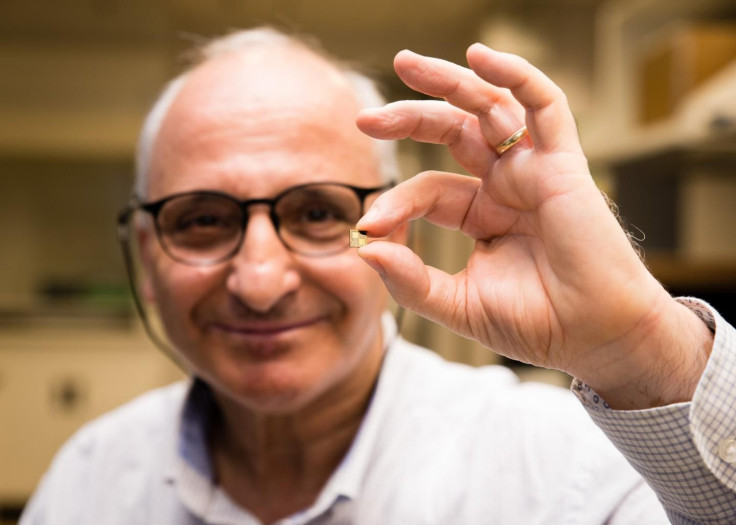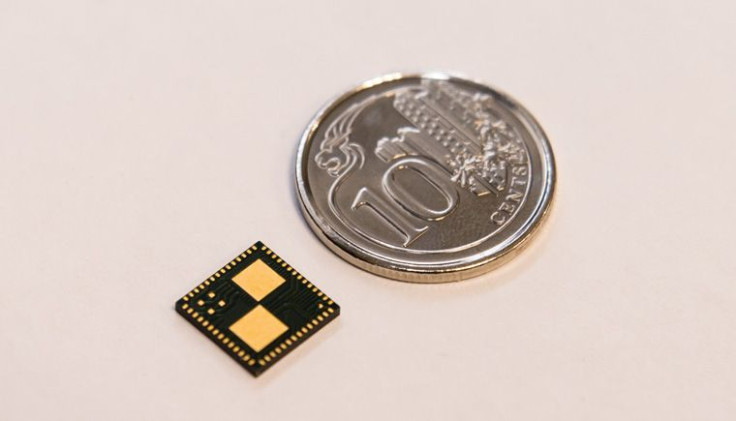Smart Chip Will Make Batteries Safer And Could Charge Your Smartphone In Just 10 Minutes

Smartphones have evolved rapidly in every area over the last eight years since the launch of the original iPhone -- except that is in terms of battery life. The original iPhone promised battery life in 2007 was the same as Tim Cook promised users of its new iPhone 6S when it was launched in September 2015. Now, one of the men who pioneered the development of the rechargeable lithium-ion batteries -- which charge everything from smartphones to electric cars -- has developed a smart chip that could allow your smartphone to charge fully in just 10 minutes.
Developed by Professor Rachid Yazami of the Nanyang Technological University in Singapore, the smart chip is small enough to be embedded in almost all batteries, according to the engineer, meaning it can be embedded in everything from the batteries of mobile devices to the huge power packs found in electric vehicles and advanced aeroplanes.
A pioneer in battery research, Yazami won the 2014 Draper Prize (known as the Nobel Prize for engineering) for being one of the three founders of lithium-ion battery in the 1980s by making them safe to recharge. Today's lithium-ion batteries are only drip fed a charge due to the threat of overheating but Yazami's latest breakthrough claims to allow batteries to be charged at full speed by measuring the voltage and temperature of the batteries and alter the amount of current reaching the battery accordingly.
This would allow batteries to charge much faster as well as being safer by detecting faults. Yazami has already been in talks with companies like Sony and Samsung, and he says he plans to talk to Tesla in the futures.
Improving the battery life of smartphones is one of the main requests from consumers, but to date all the improvement have come in the area of faster charging rather than extending the life of the battery. Recently Huawei showed off technology which would allow a 3000mAh battery (a typical size for a smartphone) to reach 48 percent charge in just five minutes.
However, Yazami told International Business Times that these types of fast charging actually degrade the battery while his technology extends the life of batteries.
"We have patented an adaptive charging protocol (ACP), which is different from the current constant current-constant voltage protocol (CCCV)," Yazami told IBT. "ACP takes into account parameters such as the battery chemistry, the state of health and the charging time. Conventional fast-charging comes with a cost, such as a shorter life of the battery. Our ACP minimizes capacity losses after each charge/discharge cycle, therefore extends the battery life."
Today's lithium-ion batteries are still relatively safe but there is still a one in a million chance of overheating and catching fire or exploding. However, considering the billions of lithium-ion batteries being produced every year, this could mean over a thousand failures a year, especially considering where such batteries are being used these days.

“This poses a serious risk for electric vehicles and even in advanced aeroplanes as usually big battery packs have hundreds of cells or more bundled together to power the vehicle or aircraft," Yazami said. "If there is a chemical fire caused by a single failed battery, it could cause fires in nearby batteries, leading to an explosion.”
While all lithium ion batteries come with a chip embedded in them, Yazami, who holds more than 50 patents related to battery technology, has developed a smarter chip embedded with a proprietary algorithm that is based on electrochemical thermodynamics measurements (ETM) technology.
Current lithium-ion battery chips show voltage and temperature readings but are unable to detect symptoms of a malfunction and can also show only the estimated amount of charge the battery is holding. In comparison, Yazami’s patented algorithm is able to analyze both the state of health and the state of charge through a 3-dimensional chart.
"In addition to knowing the degradation of batteries, our technology can also tell the exact state of charge of the battery, and thus optimize the charging so the battery can be maintained in its best condition while being charged faster," Yazami said. "My vision for the future is that every battery will have this chip, which will in turn reduce the risk of battery fires in electronic devices and electric vehicles while extending their life span."
The technology is now being developed by KVI, a startup created by Yazami, and it is expected that the technology will be made available for licensing by chipmakers and battery manufacturers before the end of 2016.
© Copyright IBTimes 2024. All rights reserved.






















